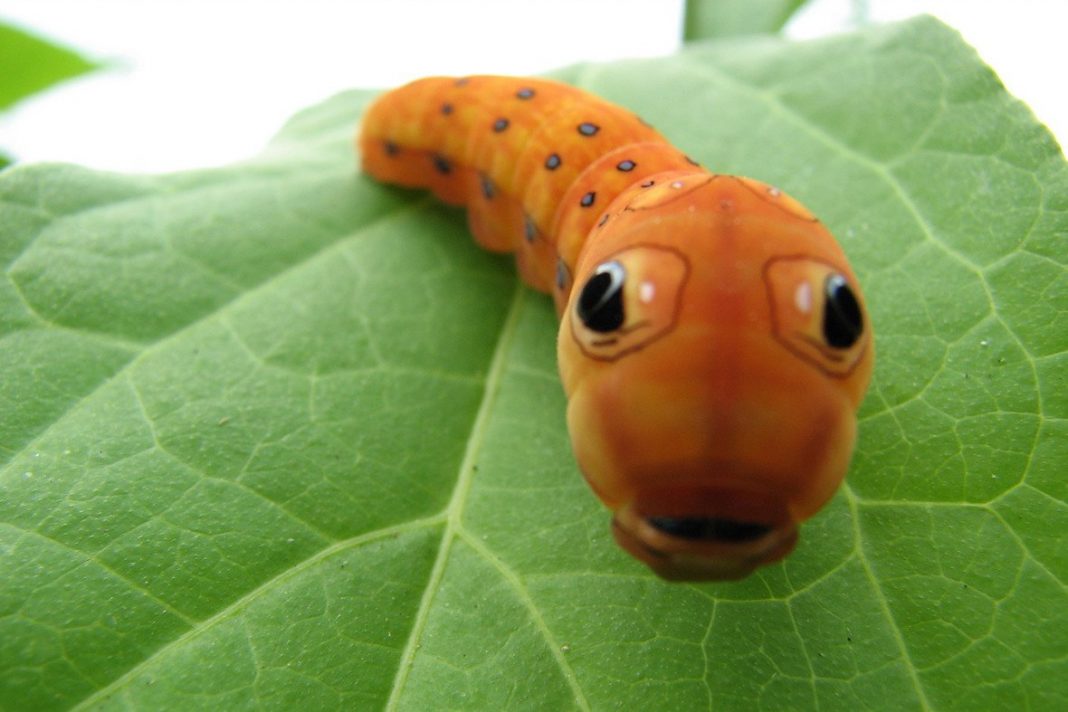In a study published in Nature & Ecology Evolution, researchers have found that certain chemical released by plants can affect the behavior of caterpillars, specifically turning them into cannibals. The study used tomato plants, which release the chemical methyl jasmonate (MeJA), and the small mottled willow moth, which a is a common pest of many crops.
While it’s fairly usual for insects to eat each other as well as the leaves and stems of crops, the new study now shows that the tomato plants can work together to cause them to feed on each other and reduce the pest population, sooner than they might otherwise.
“This is a new ecological mechanism of induced resistance that effectively changes the behavior of the insects,” says Richard Karban a scientist from University of California at Davis, who was not involved in the study.
The scientist behind the study, John Orrick, an integrative biologist at the University of Wisconsin at Madison, initiated a pest defense reaction in their tomato plants, by spraying them with MeJA, a chemical that warns other plants that there is past danger. In turn, the tomato plants released a toxin, reducing their nutritional value to the pests. When the moth caterpillars were released on the plants, those with more MeJA lost fewer leaves and other matter than other plants.
In order to see MeJA’s effects on the moth’s caterpillars, they fed leaves from triggered plants and non-triggered plants single caterpillars in containers with dead larvae. Caterpillars fed with the heavily treated leaves had eaten more larvae and started on them sooner than the caterpillars fed with the untreated leaves.
Time is the key difference as the caterpillars will eventually turn on each other anyway. “If plants can induce pests to eat each other earlier, there will be more of the plant left untouched,” says Orroch. But the plants don’t use this mechanism lightly. “It is very possible that the plants will strike a balance and decide if the attack is serious enough to activate the defenses,” he adds.
Although the finds are interesting, it isn’t clear if a similar technique can be used to protect crops for human consumption. Anurag Agrawal, a scientist from Cornell University, warns of the possible dangers if used in widespread agriculture. “Nonetheless, under some field conditions, cannibals may be more fit than non-cannibals. So this is something to watch out for,” he added, “We don’t want to be encouraging super-pests”.
More News to Read











